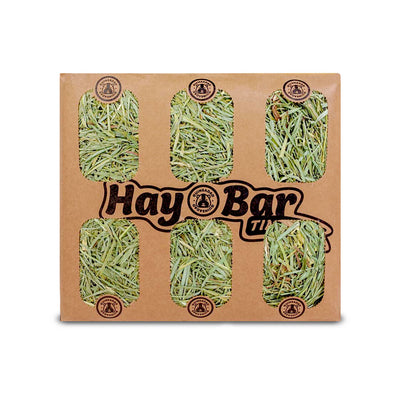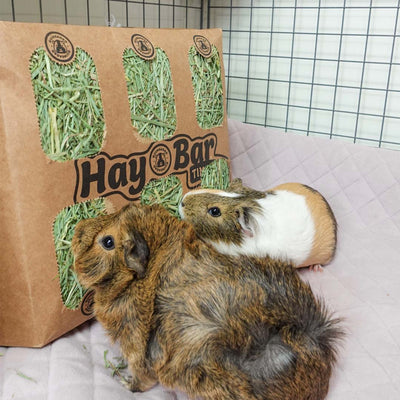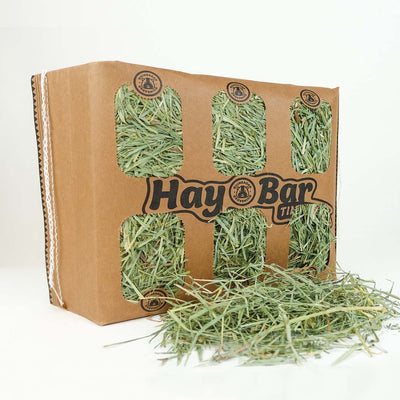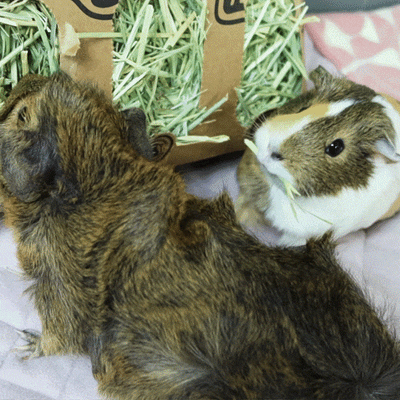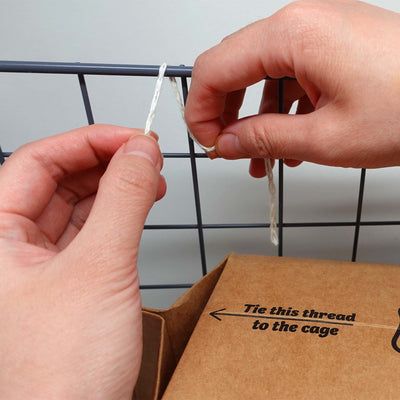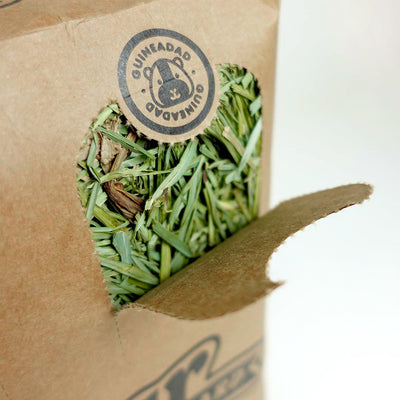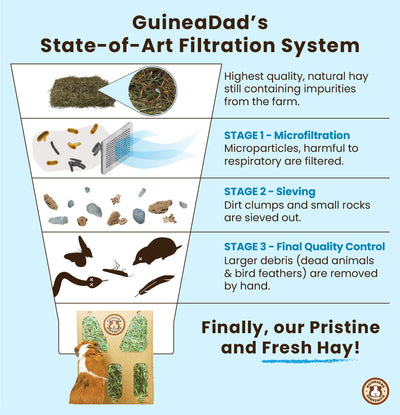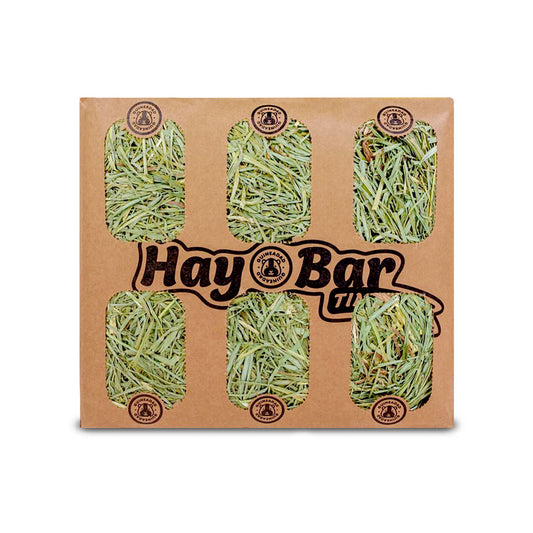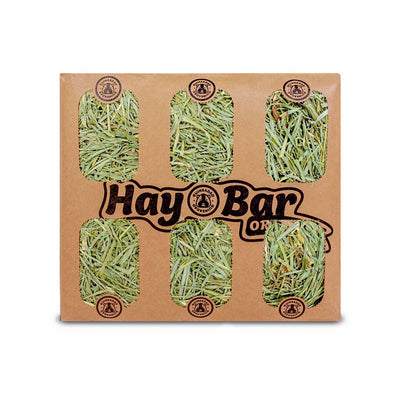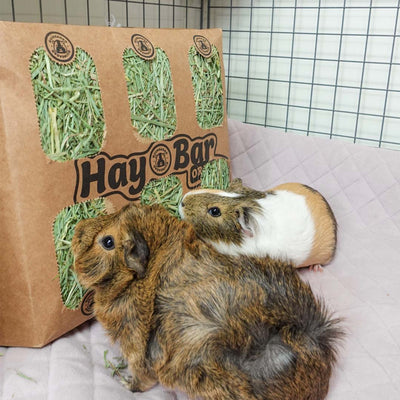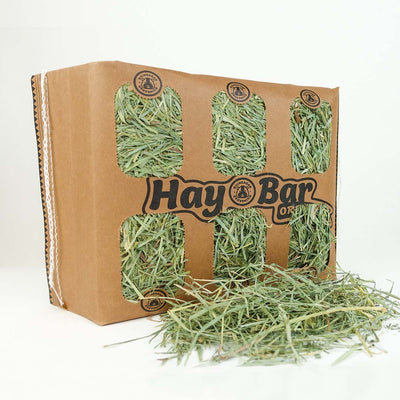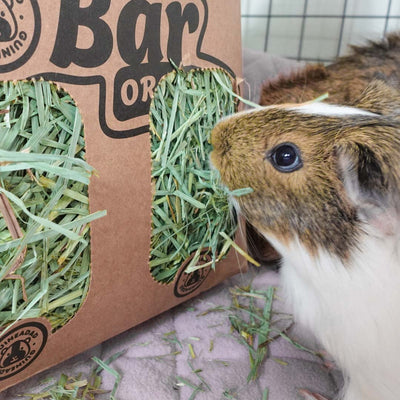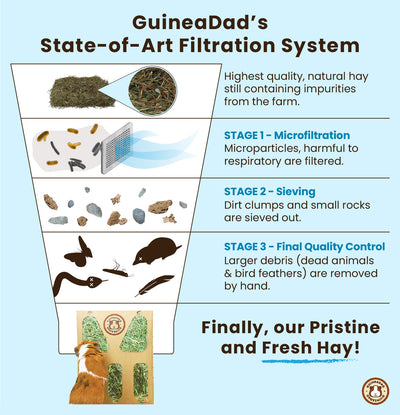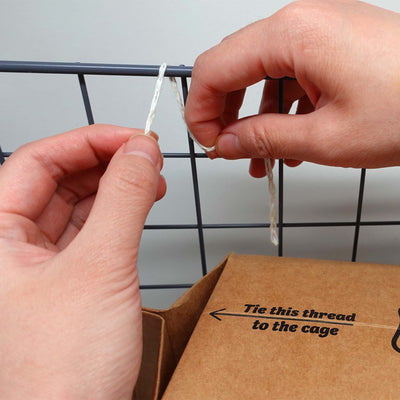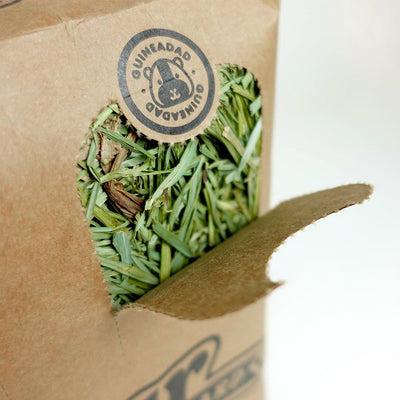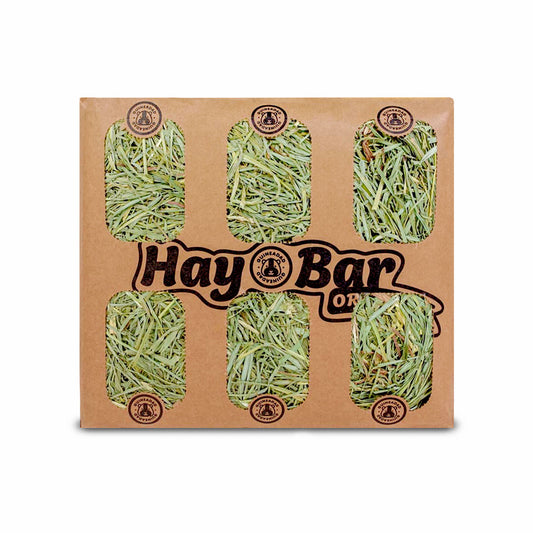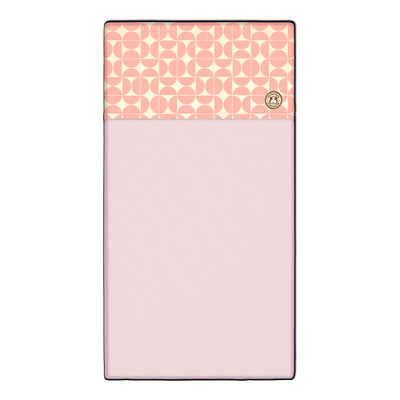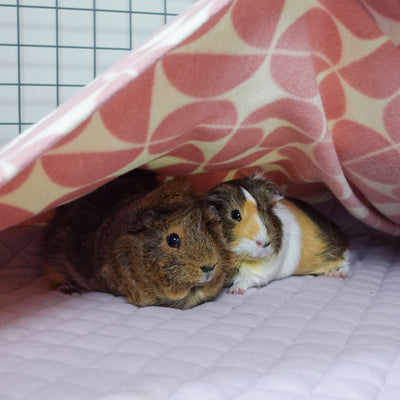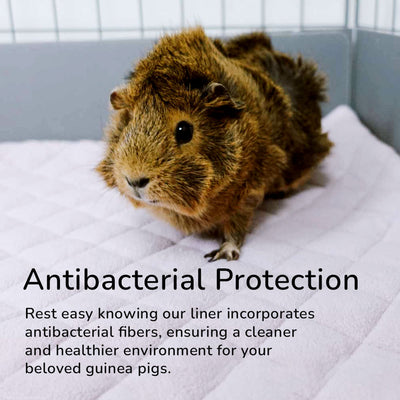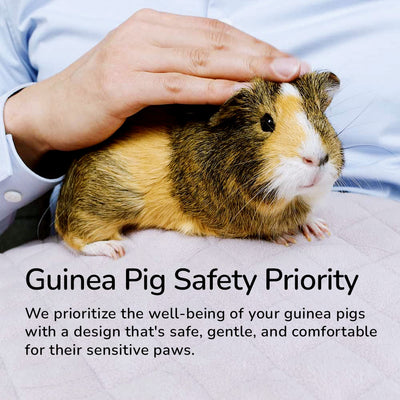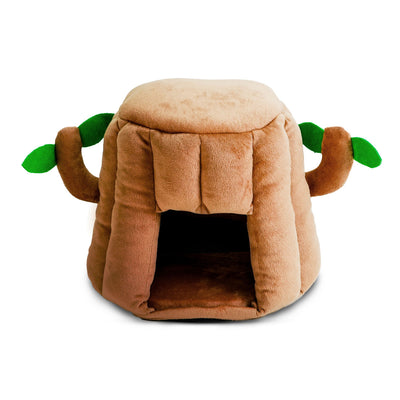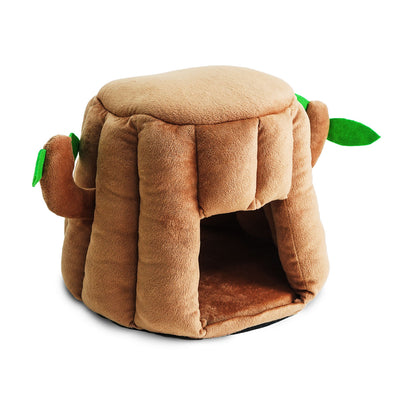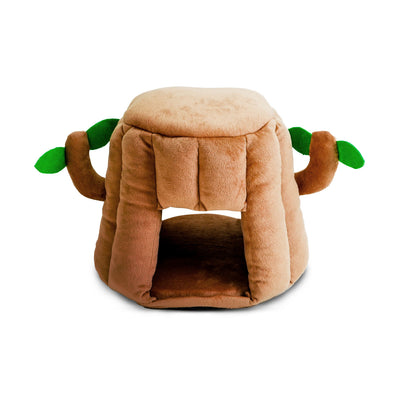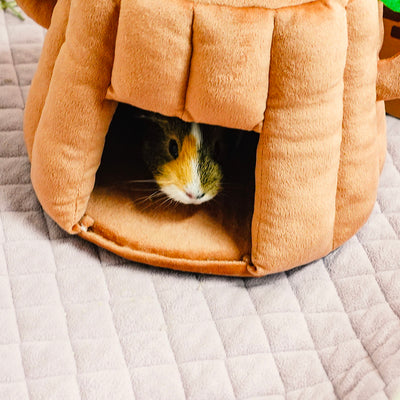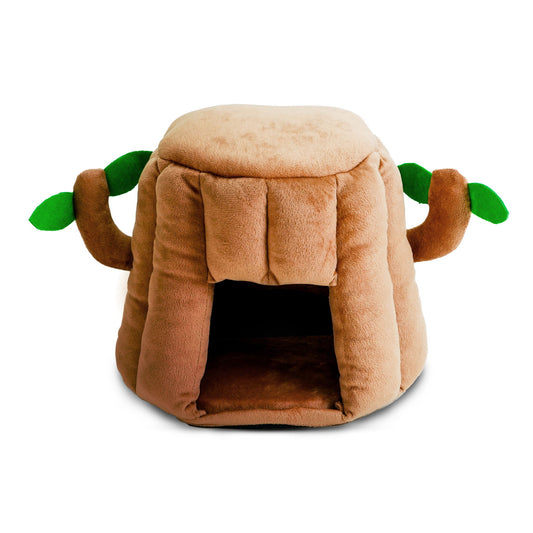One thing that guinea pig parents will always know for sure is the fact that guinea pig teeth are constantly growing! This is something that we’re reminded of again and again, especially when we emphasize that hay should make up the biggest portion of the guinea pig diet in order to make sure that their teeth are properly worn down.
Aside from that, there is so much more to be known about guinea pigs teeth and the guinea pig teeth problems that they can suffer from! From tooth displacement, which isn’t that common but does occur in some guinea pigs, to things like malocclusion, there’s so much to learn!
Dental issues have a hand in causing so many more health issues than we may realize. With more knowledge, you’ll be able to prevent your guinea pig from having to suffer from some of these diseases in the first place.
What causes guinea pig teeth problems?
It’s important to note that the guinea pigs’ wild ancestors and the remaining guinea pigs in the wild had a diet that consisted of wild grasses, leaves, and other wild vegetation. Generally, wild grasses are harder to chew than the hay that your modern, domesticated guinea pigs may be accustomed to, and these grasses were also extra fibrous and did the work of grinding and wearing down wild guinea pig teeth down to healthy lengths.
The constantly-growing teeth were developed in guinea pigs in order to accommodate the nature of the guinea pig diet, whether wild or domesticated. Because piggies are constantly munching on their foods, their teeth are usually worn down in an even, regular manner and results in mostly uniform-lengthed teeth depending on which section of their mouth they’re located in.
If there is something causing the teeth to be worn down unevenly, the teeth can develop different kinds of issues that will affect the way that your guinea pig can eat, as well as can cause your piggies to injure and wound their own mouths.
The most common cause of dental diseases in guinea pigs across the board is improper diet, and there can also be issues that arise in guinea pigs suffering from things like scurvy and malocclusion that we mentioned previously. It’s important that guinea pigs are given a proper diet with the correct proportions.
Again, we have to emphasize—most of the guinea pig diet should consist of hay, with a small amount of pellets and some fresh vegetables and the occasional fruit as a treat, as well as water. Chewing on hay is the best way for guinea pigs to naturally wear down their teeth.
If they aren’t receiving enough, this will lead to some of the dental problems we’ve mentioned briefly, which will cause them to eat even less in general due to the discomfort that these dental issues cause.
The mistake that some guinea pig parents will make is feeding their guinea pigs too much of their pellets or too much vegetables. While vegetables with fiber can be helpful for grinding down your guinea pig’s teeth, none of them compare to the effectiveness of hay!
Some guinea pigs are just born with different issues with their bone formation, or even jaw misalignment that causes dental problems over time. This can especially be the case in guinea pigs with the satin gene that actually show symptoms.
What are some guinea pig teeth problems?
It’s important to note that dental issues for guinea pigs aren’t simply guinea pig teeth problems, but they can also snowball into even bigger health problems for them that can become, in some of the worst cases, fatal. It’s vital that we as guinea pig parents are doing our best to prevent these diseases from happening as best as we can.
If you suspect that your guinea pig may have some dental issues, it’s important that you take them to the vet to get X-rays done to be sure! This way your veterinarian can take immediate action in creating a treatment plan for your guinea pigs, which is vital because most guinea pig teeth problems are accompanied by changes in eating habits, which can be dangerous.
Generally overgrown guinea pig teeth
This is the most basic dental issue that guinea pigs will have, and it is most commonly caused by improper diet, due to there not being enough hay provided to them. It’s also the easiest dental issue for you to help prevent from occurring in your guinea pigs.
Root impaction or Elongated roots
Generally, overgrown guinea pig teeth can cause root impaction, as well as abscesses and diseased gums. This can lead to a loss in appetite, weight loss, and excessive amounts of drool. Elongated roots occur when the root of the tooth grows and/or is pushed into the jaw. You can sometimes feel this occurring by feeling along the jawline for bumps.
Elongated roots located in the upper region of the jaw can cause tearing, or the eye to bulge, infection, and other problems related to the face.
Malocclusion
This guinea pig teeth problem is one that can be responsible for causing gastrointestinal stasis (GI stasis) in guinea pigs. This occurs when the teeth overgrow due to lack of grinding. Most cases involve the back teeth on either side of the guinea pig mouth growing inwards and towards each other over the tongue, and the upper teeth will grow towards their cheeks.
This can make it extremely difficult and uncomfortable for your guinea pig to eat, which will then lead to other health problems that they wouldn’t have had to suffer from if they had been given the proper diet!
Displacement
This is something that doesn’t necessarily occur often in guinea pigs, but it does happen occasionally! It’s usually noticed by noticing that a guinea pig is missing a tooth. When it comes to guinea pig teeth, the most valuable tool that a veterinarian can use for detecting issues is by utilizing X-rays.
Through X-rays, it can be found that the missing tooth isn’t actually missing, but is growing in the guinea pig nasal cavity! The next step is usually for the tooth to be removed in surgery. This is done by making incisions in order to make removing the tooth easier, and it is then extracted through the nostril.
Misalignment
This is a guinea pig teeth problem that occurs in guinea pigs that are naturally born with malformations of the jaw, or their jaws developed in a misaligned manner.
As mentioned previously, this can occur most notably in guinea pigs that carry the satin gene due to the fact that the gene causes their bones to decalcify—this also includes their teeth. What this usually leads to is pain and difficulty eating, which can then lead to tooth overgrowth due to either changes in appetite where the guinea pigs are avoiding harder foods, or they’re not eating at all.
How do guinea pigs get diagnosed with dental disease?
Usually this can be done by an experienced vet that has worked with guinea pigs before. They will perform a thorough examination of the mouth utilizing a speculum or otoscope, specialized for use on small animals and guinea pigs in particular.
We mentioned previously that the best tool that veterinarians can use to diagnose dental disease is by utilizing X-rays, CT, or an even more in-depth examination while the guinea pigs are under anesthesia, because sometimes you can’t fully tell what the dental issue is just by looking at the teeth that are visible outside of the gums. Sometimes the problem is elongated or impacted roots, which has to be identified with an X-ray.
What treatment is available for guinea pigs teeth problems?
Treatment options will depend on how severe the dental issues are! For problems that are relatively mild and minor, you can treat them by simply increasing the amount of hay that you feed them, and decrease the amount of pellets. You can decrease the amount of vegetables too to encourage them to turn to the hay, but it’s not always necessary.
You may even have to hand-feed your guinea pig using a syringe if you aren’t able to immediately take your guinea pig to the vet for whatever reason. You should make sure to consult your veterinarian for the correct course of action for your individual guinea pig!
For other conditions that are more serious, procedures may need to be performed while your guinea pig is under anesthesia. Dental issues that may need this are things like tooth displacement, or even simply shaving down a guinea pig’s teeth to the proper length and angle.
Dental diseases can be uncomfortable and downright painful for your guinea pigs, and in extreme cases, can cause extreme health issues that sometimes can lead to death if gone untreated. It’s important to note that guinea pig dental diseases are treatable when they’re caught early, and sometimes they aren’t cured permanently. This means that your guinea pig may require constant and regular treatment for the rest of their life.
How to prevent guinea pig teeth issues
Proper Diet
We’re going to sound like a broken record, but make sure that you are feeding your guinea pig a proper diet. Hay should be provided in unlimited quantities to encourage them to munch on it all day, every day. If you have trouble keeping up with your guinea pigs’ hay-eating pace, you might want to reconsider the way that you’re feeding it to them.
If you’re giving it to them in piles that you’re having to constantly refill, then it might be best to try using a few large feeders or racks spread around the cage that you can leave large amounts of hay in, so you don’t have to refill as often!
Or, you can utilize GuineaDad Hay Bars and GuineaDad Hay Boxes for feeding your guinea pig hay. Not only does using these make it so you don’t have to worry about refilling their hay, but it’s also microfiltered for dust and debris that is harmful and dangerous to your guinea pigs’ lungs.
It’s also important for your guinea pigs to consume tons of vitamin C in order to prevent scurvy. By doing this, they can avoid any pain and discomfort that might cause them to eat less altogether.
Keep your guinea pigs stimulated
Give them some other outlets for chewing and gnawing! While hay is the best option for them to properly wear down their teeth in a healthy manner, you should make sure that there are other methods available to them as well. For example, having toys and other items in their cage that they can chomp on is always a good idea!
Our favorite thing to give our guinea pigs Ru and Mi is the GuineaDad Queen’s Castle. This is our solid hardwood hidey that is 100% healthy and safe for guinea pigs.
Many other wood hideys utilize softwoods that are extremely dangerous for piggies because wood variations like cedar and pine give off toxins that can destroy the linings of your guinea pigs’ lungs, putting them at risk for upper respiratory infections.
Plywood also isn’t good for guinea pigs because of the chemical process that the wood goes through in order to get those different layers put together. It’s important that all your guinea pig’s wooden items are made with solid, high quality hardwoods in order to be safe for them.
The safe hardwood also makes it a super great toy for your guinea pigs to gnaw on for teeth maintenance.
Cardboard is another material that your guinea pig can chew on to maintain their teeth in a healthy way. However, it’s important to note that not all kinds of cardboard will be safe for your guinea pigs due to the fact that you don’t know what the manufacturing process is for those shipping boxes you get with your online shopping orders.
However, you don’t have to do any wondering when it comes to GuineaDad cardboard. All our products, including the Crunchy Condo hideys themselves are made with paper that is safe for your guinea pigs, as well as non-toxic glue and food touch-safe ink, making them the healthiest cardboard that your guinea pig can get their little paws on.
Pay close attention to your guinea pig’s health!
This is the absolute best way for your guinea pigs to stay healthy. As long as you’re keeping an eye on them and take note of any health changes that you may notice in them right away, consulting your veterinarian and getting them the treatment that they need can reduce any kind of suffering they may be going through!
Guinea pigs can’t tell us when they’re not feeling well, so it’s important that you notice first!
Want to read more about your guinea pig’s health and how to prevent them from getting sick?
Check out these blog posts to learn more.






















